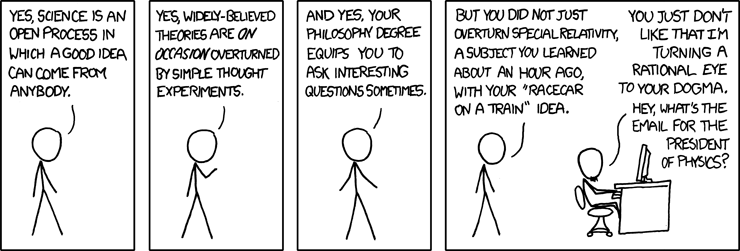I went along to see Richard Dawkins in Brisbane tonight. The results were unsurprising. I agreed with most of what he had to say – everything except his starting assumptions and conclusions.
He started by telling us all that our lives are incredibly improbable. That we should never take them for granted, that we should never take our existence for granted, and that we should marvel at our very unlikelihood. Then, he suggested, as his latest book indicates – evolution is the greatest and only show on earth.
Our improbable beginnings began with an improbable meeting of improbable matter that expanded improbably in a way that created stars and then life and then us. Somehow it makes more sense to believe a void created complexity than to believe a God did. But we can’t believe that a void created a God (especially the God of the Bible) who would eventually create a world… Once you start speculating about origins all the options seem possible to me.
It is, of course, improbable that anything like a God could possibly have been involved in the process – because for Dawkins as soon as you can describe the process the notion of an author is redundant. He ridiculed the God of the gaps (which is ridicule worthy) and a bunch of other strawmen. Then he closed with a question and answer session.
He was funny, engaging and most concilliatory. He just isn’t really engaging with any Christian belief that includes the ability to synchronise Christian belief with scientific truths, and he doesn’t seem to think that the Christian lay person is capable of anything but a strict, fundamentalist interpretation of particular passages. He did, in question time, suggest that the enlightened “bishops and archbishops” of the Christian world believe that God may have had some role to play in the start of everything but has then stepped back. Curiously missing the point of the incarnation.
He had a swing at anyone who believes anything on the basis of faith, authority, or feeling (there was one other factor – I forget) – and suggested that evidence is where it’s at. Which is fine. But he doesn’t really have anything to say to those of us who are believers because we think the evidence for the death and resurrection of Jesus is compelling. Like a modern day Don Quixote he spends most of his time tilting at windmills to the cheers of an equally delusional crowd. Until he starts actually engaging with the facts his efforts to discredit his opponents are risible.
I think in the process of answering questions from the floor (particularly one about whether our close relationship to the ape world had any moral implications) he may have suggested it was morally ok to breed with the entities that link us biologically to the apes – the only problem is that they’re extinct.
In question time a couple of people asked about the evolutionary future of humanity – I still want to know how feasible my shirt is – will we one day turn into shape shifting alien robots? Or self healing immortal mutants with retractable claws? I sure hope so.

